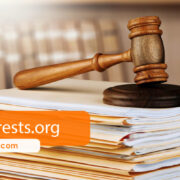When to do the smoke control (or energy efficiency check) of the boiler
With regard to ordinary maintenance, the law only establishes the obligation, but on the frequency it refers to the manufacturer’s instructions (which in any case provide for annual control in 99% of cases).
For the control of fumes, instead, there is a much more precise legislation, which can also be further specified by each region.
According to the legislation, in fact, the control of the fumes must be put in place every 2 or 4 years, depending on the type of plant and the fuel.
Specifically, the check must be carried out every 2 years for:
- boilers with a power exceeding 10 kW and less than 100 kW, with liquid or solid fuel;
- boilers with a power exceeding 100 kW operating on LPG or methane gas
The detachment period between the two controls is extended to 4 years for boilers with a power exceeding 10 kW and less than 100 kW that use methane or LPG as fuel, while it shortens to 1 year for heating systems with a power greater than 100 kW with liquid or solid fuel.
As mentioned, these terms may vary if the region decides otherwise, or when the installation company or manufacturer has indicated different instructions in the booklet.
Appliances with power less than 10 kw, such as electric or gas heaters, are exempt from fumes control.
Note: the fumes control should also be carried out during the first ignition.
Table of Contents
Difference between ordinary and extraordinary boiler maintenance
Ordinary boiler service consists of those operations that are programmed and that are carried out even if there is no failure or anomalies worthy of note in the appliance that operates normally.
On the other hand, extraordinary maintenance operations are called all those occasions when the technician is called unexpectedly due to breakages, breakdowns, warning lights and malfunctions of any kind.
In both cases, however, the technician must mark what has been done in the boiler booklet.
Revision of the boiler in the second house
We have seen how ordinary maintenance is important and essential for all boilers, so that they can operate with maximum safety and efficiency; but what happens if an installation is in a second home, and is therefore used less frequently if almost never?
Is it still mandatory to spend money on maintenance or in these cases the risk of penalties is lower due to the lack of use?
In truth, the heating system is not subject to maintenance, fumes tests and various checks only and only in two cases:
- It’s not working
- It was declared inactive (or if, after the supply contract was canceled, the plant was marked with seals and the notice was given).
Once the system has been deactivated, it can be put back into action only after the necessary checks and maintenance have been carried out, and after notification of reactivation has been given.
If, on the other hand, the appliance is working and could restart being activated at any time, it is in any case subject to the law with regard to safety checks and maintenance.
Regulations, costs and penalties for boiler maintenance
It is established that, in the absence of specific provisions on the part of the installer of the air conditioning appliance, the actions concerning maintenance must be implemented with appropriate periodicity and in accordance with the necessary indications.
The aforementioned periodicity is fixed in the technical instructions of each air-conditioning system, established by the company that manufactured it following the regulations on the subject.
Therefore, as we mentioned earlier, the law establishes that maintenance is binding, but the times are not established unambiguously, because they depend on the type and characteristics of each plant: the time frame that must stand between one control and another is established based on the manufacturer’s instructions.
At the end of the review, in the event that no anomalies have been detected and the result is positive, the technician delivers a blue stamp which carries an additional cost.
In case of loss of the boiler book, it is necessary to ask for a new one.
If the necessary checks are not carried out, in contravention of the laws, a penalty of several orders of magnitude may be incurred:
It is important to take into account the fact that the Municipalities have the duty to notify the interested party of the check up at least 20 days before the actual event, therefore it is possible to settle in time and avoid the sanction.
However, it must be stressed again that the execution of regular maintenance does not have the sole purpose of avoiding fines, but above all to make a functional system last longer, and to maintain optimal safety conditions.









Comments